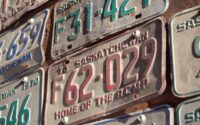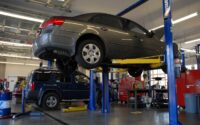Best Way to Check is a Car is Stolen
Car theft is a pressing issue in the United States, with thousands of vehicles stolen every year. The thought of someone driving off with your car can be unsettling, and it’s not just vehicle owners who need to worry. If you’re in the market for a used car, ensuring that what you’re buying isn’t someone else’s lost property is crucial. With thieves becoming increasingly savvy, it’s more important than ever to know how to check if a car is stolen before making any commitments. Protecting yourself from potential legal trouble and emotional distress starts with being informed and vigilant about the cars you consider purchasing. Let’s dive into some practical steps to help you stay one step ahead.
What to do if you suspect a car may be stolen
If you suspect a car may be stolen, your first instinct should be to stay calm. Avoid confrontation with the driver or anyone nearby. Instead, take a moment to observe details.
Look for signs that the vehicle might not belong where it is parked. Check for mismatched license plates or unusual wear and tear that doesn’t match the overall condition of the car.
Next, gather information such as make, model, color, and any unique features like decals or damage. This will help authorities later.
Contact local law enforcement immediately. Provide them with all the details you’ve noted down. They can run checks in their system to see if the vehicle has been reported stolen.
It’s crucial not to engage directly but rather let professionals handle it from there. Your role is simply to report what you’ve seen without putting yourself at risk.
Using online databases to check a car’s history and ownership
Online databases are a powerful tool when it comes to verifying a car’s history. Websites like Carfax and AutoCheck provide detailed reports that can reveal vital information about the vehicle.
These platforms allow you to enter the Vehicle Identification Number (VIN) and access records related to accidents, title changes, and theft. A thorough report will show if the car has been reported stolen or involved in any significant incidents.
Accessing these services is easy and often requires just a small fee. Investing in this resource could save you from potential headaches down the road.
Additionally, many state DMV websites offer free checks for stolen vehicles based on VINs. This can be an extra step to ensure peace of mind before making any purchase decisions. Always take advantage of these resources—they’re your first line of defense against buying a stolen car.
Understanding the VIN number and how it can help identify stolen vehicles
The Vehicle Identification Number (VIN) is a unique code assigned to every car. It serves as the vehicle’s fingerprint, providing essential information about its history and specifications.
Each VIN consists of 17 characters that reveal details such as the manufacturer, model year, place of assembly, and more. This number can often be found on the dashboard or inside the driver’s side door frame. 
When checking if a car is stolen, using the VIN becomes crucial. Many online databases allow you to enter this number to access records related to thefts or accidents.
If a car has been reported stolen, it will usually show up in these searches. Always take time to verify this information before making any purchase decisions. Understanding how to interpret a VIN helps potential buyers avoid unwittingly engaging with stolen vehicles and ensures peace of mind during transactions.
Tips for inspecting a car in person to determine if it is stolen
When inspecting a car in person, your first step is to examine the VIN. It should be consistent across all locations on the vehicle, including the dashboard and engine block. Any discrepancies can raise red flags.
Next, check for signs of tampering. Look closely at screws and fasteners around the license plate or door frames. If they appear damaged or mismatched, that could indicate foul play.
Pay attention to the overall condition of the car too. A stolen vehicle may have missing parts or an unusual amount of wear and tear compared to its age.
Don’t forget about paperwork! Request a title and registration documents from the seller. Authentic documentation will provide crucial insights into ownership history.
Trust your instincts during this process. If something feels off, it’s wise to walk away rather than risk purchasing a potentially stolen vehicle.
Legal considerations when purchasing a used car
When buying a used car, understanding the legal landscape is crucial. Begin by ensuring the title is clear. A clean title means there are no liens or outstanding loans on the vehicle.
Research state-specific regulations as they can vary significantly. Some states require sellers to provide a vehicle history report before completing the sale.
Consider getting a bill of sale that outlines all terms agreed upon. This document serves as proof of purchase and protects both parties in case disputes arise later.
Be wary of “as-is” sales; these often mean you’re accepting any hidden issues without recourse.
Ensure you complete any required paperwork promptly after your purchase, including registration and insurance changes, to avoid potential headaches down the line. Always prioritize transparency throughout your transaction for peace of mind.
Conclusion: The importance of being diligent and aware when buying a car to avoid purchasing
Being diligent and aware when buying a car is crucial. The prevalence of vehicle theft means that taking the time to check if a car is stolen can save you from significant financial loss and legal troubles down the line. Always conduct thorough research using online databases, understanding VIN numbers, and inspecting vehicles in person.
When purchasing a used car, don’t rush into any decisions. Ask questions about the vehicle’s history and ownership records. Trust your instincts—if something feels off, it probably is.
By being vigilant and informed, you empower yourself to make better choices in the marketplace. This diligence ensures not only peace of mind but also protects your investment for years to come. Remember that knowledge is your best defense against falling victim to scams or illegal sales practices in the automotive world.



